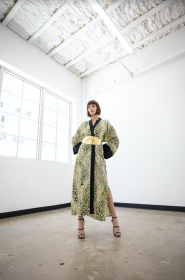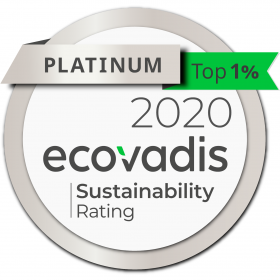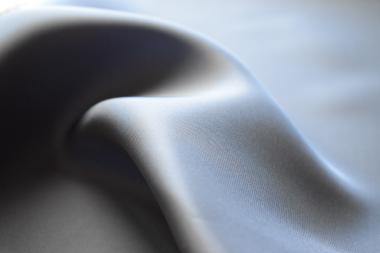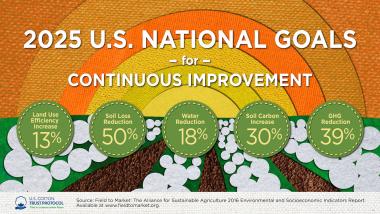Bemberg™: Nilufer Bracco launches niLuu collection
- The stunning niLuu collection by former professional volleyball player Nilufer Bracco features smart Bemberg™ fabrics by Ipeker
- Wonderful kimonos for women and men, sleep and face masks are the key pieces of the PETA certified and cruelty-free collection, 100% Bemberg™ and vegan
Former professional volleyball player Nilufer Bracco recently launched niLuu, a PETA approved cruelty-free loungewear brand using 100% Bemberg™ by Asahi Kasei that combines the iconic elegance of traditional silk with a socially and environmentally ethical production process.
Bemberg™ is a fiber made from the smart-tech transformation of cotton linters bio-utility materials that are converted through a traceable and transparent closed loop process; the Bemberg™ Ipeker Textile fabric’s uniqueness comes from the exceptional quality characteristics achieved in design. The end result is a luxurious fabric so soft and smooth that it is almost like a second skin, breathes like cotton, drapes beautifully like silk, and reflects the cultural tradition of luxury textiles from founder Nilufer Bracco’s native country, Turkey. The first collection released by Miami based niLuu features premium quality kimono robes, sleep masks, face masks, and pillowcases that are available in a variety of deep and vibrant colors, and with a soft-brushed finish typical of premium sand-washed silk.
Designed to not only feel and look amazing but the entire niLuu collection is sustainable, biodegradable and 100% vegan. Ipeker Textile, one of the major Bemberg™ fabric producers in Europe, proudly holds the title as the first vegan fabric producer in the world, receiving Vegan V-Label certificate on around 150 different products that adhere to the guidelines of the European Vegetarian Label, most of them developed with Bemberg™ yarn.
niLuu’s innovative Bemberg™ collection is hypoallergenic, antistatic, easy to care for, and it is also known to have several benefits for the skin. The breathability of the fabric helps to maintain body temperature; excellent moisture control means the fabric doesn’t dry out the skin or hair in the ways that cotton would and minimal friction against the skin means it is also known to have anti-aging benefits. Speaking of niLuu’s high-quality Bemberg™ fabric, Founder, Nilufer Bracco adds, “Our innovative Bemberg™ vegan silk delivers the best of both worlds. Not only does our luxury fabric feel amazing when you use it, but you can also feel good knowing that it caused minimum harm to the planet when it was produced and that it will leave only the slightest trace when it reaches the end of its lifecycle.”
The luxury textiles brand has also shown its commitment to responsible practices, by partnering with 1% for the Planet pledging to donate 1% of their annual revenue to environmental organizations that work hard to protect our planet.
Bemberg™ Asahi Kasei Nilufer Bracco PETA Vegan Fashion Mode Nachhaltigkeit loungewear
GB Network











































